Numbers worksheets activities for Ages 3-7
19 filtered results
-
From - To
Explore our engaging numbers worksheets and activities designed specifically for children ages 3-7! Our resources are perfect for helping young learners develop essential math skills in a fun and interactive way. From counting exercises and number recognition to simple addition and subtraction, each worksheet promotes foundational mathematics while encouraging creativity. With vibrant illustrations and easy-to-follow instructions, children will enjoy learning through play. Whether at home or in the classroom, our activities support diverse learning styles and keep kids motivated. Discover our comprehensive selection of printable worksheets to inspire a love for numbers and enhance early math knowledge today!
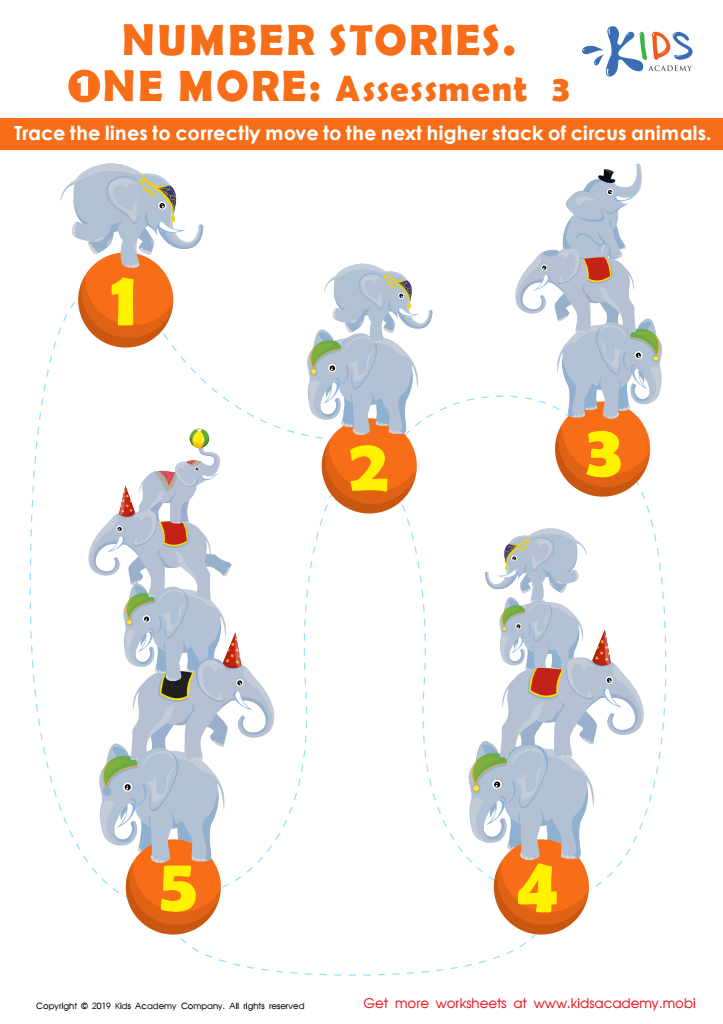

Number Stories One More: Assessment 3 Worksheet
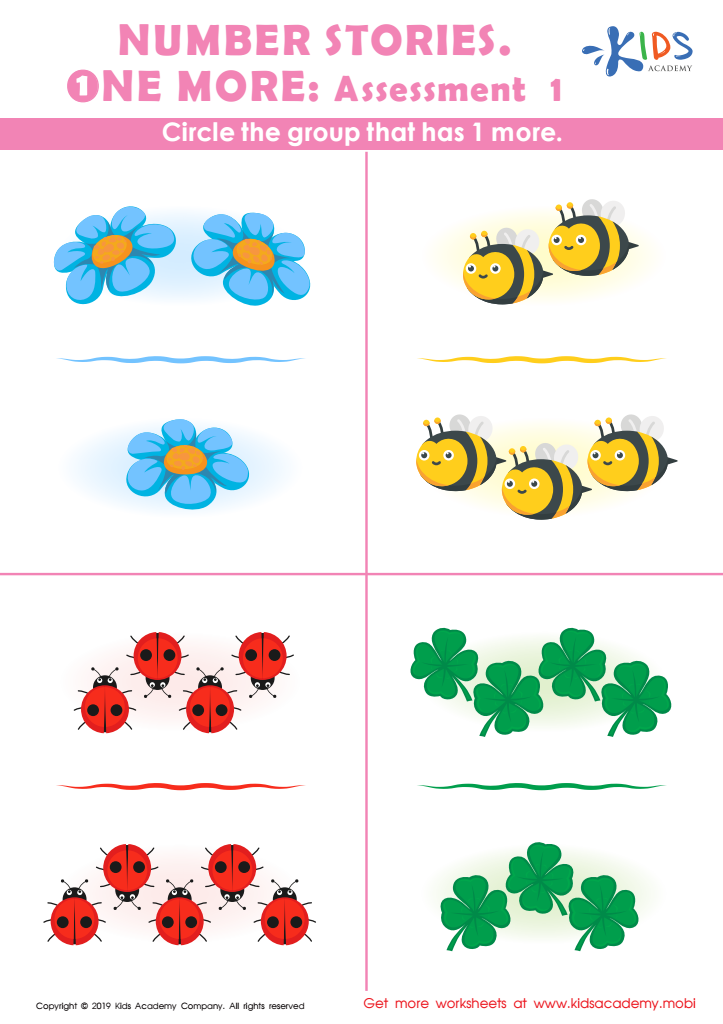

Number Stories One More – Assessment 1 Worksheet
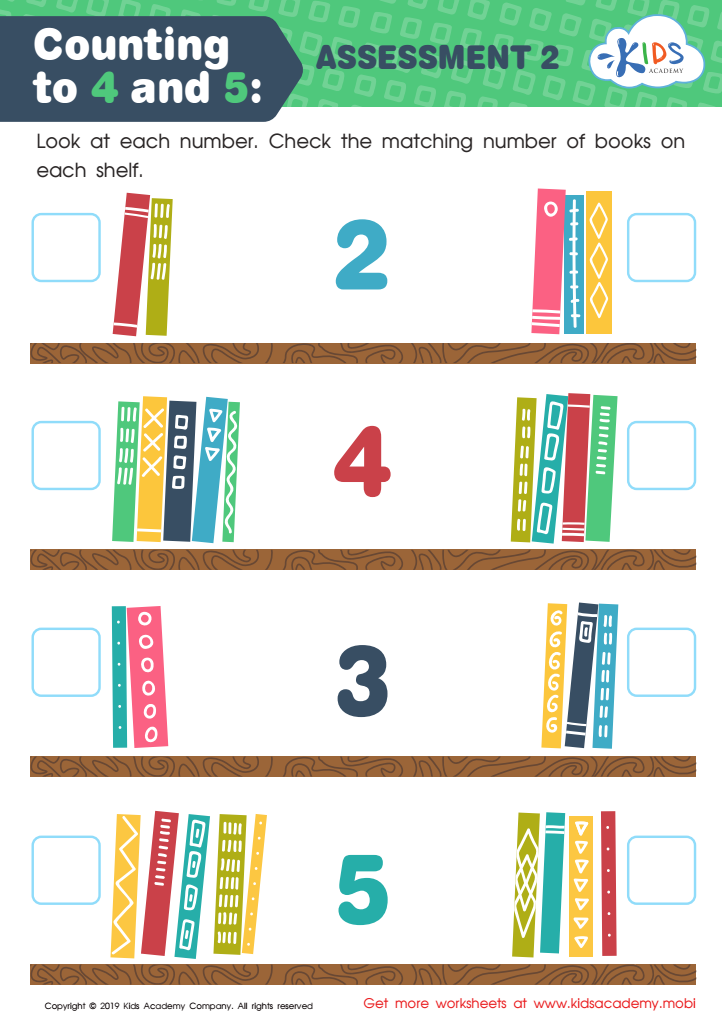

Counting to 4 and 5: Assessment 2 Worksheet
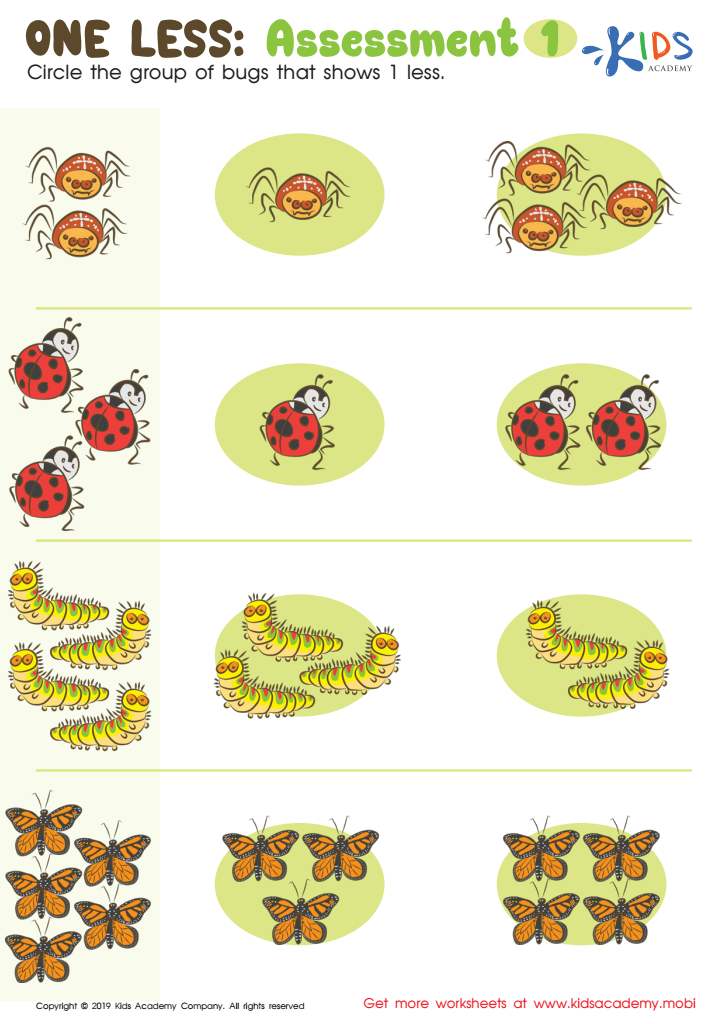

One Less: Assessment 1 Worksheet
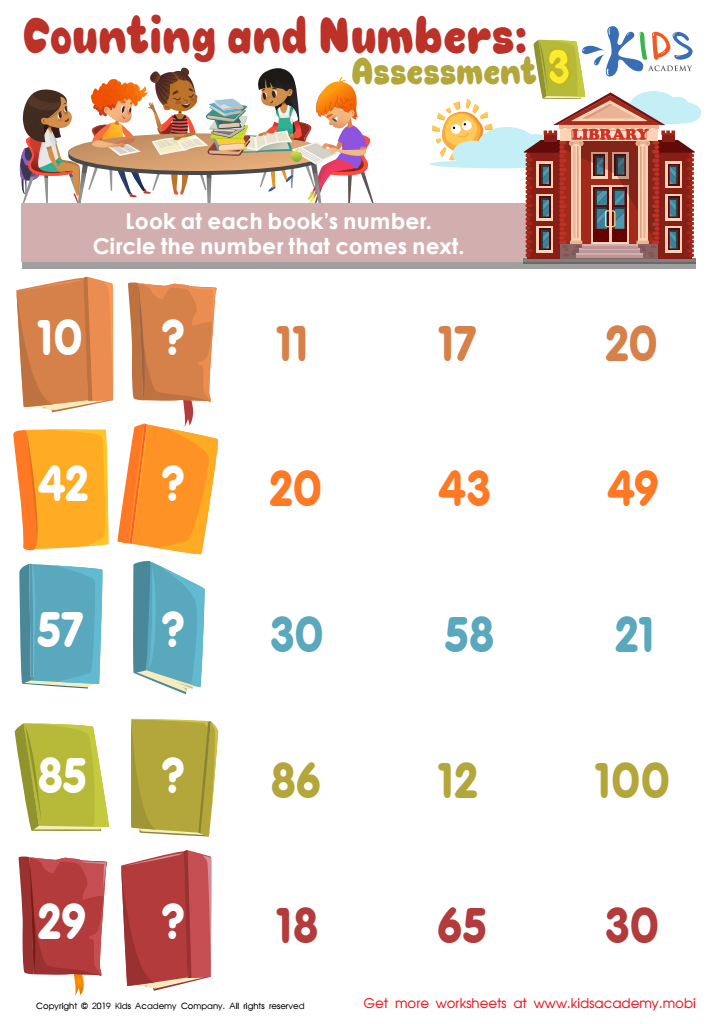

Counting and Numbers: Assessment Worksheet
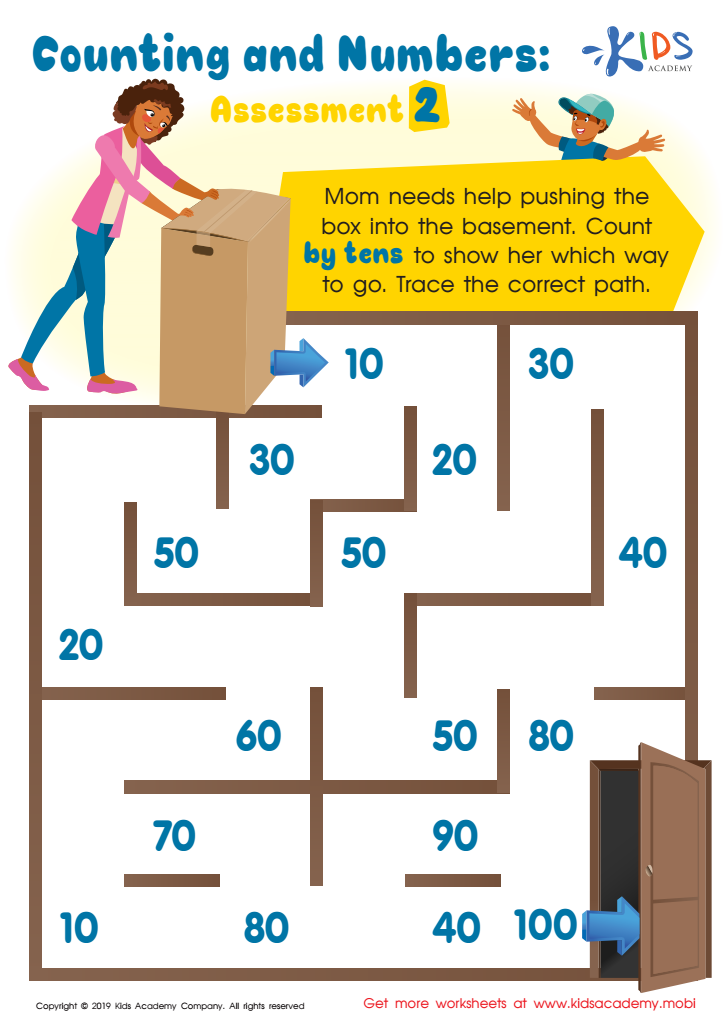

Counting and Numbers: Assessment 2 Worksheet
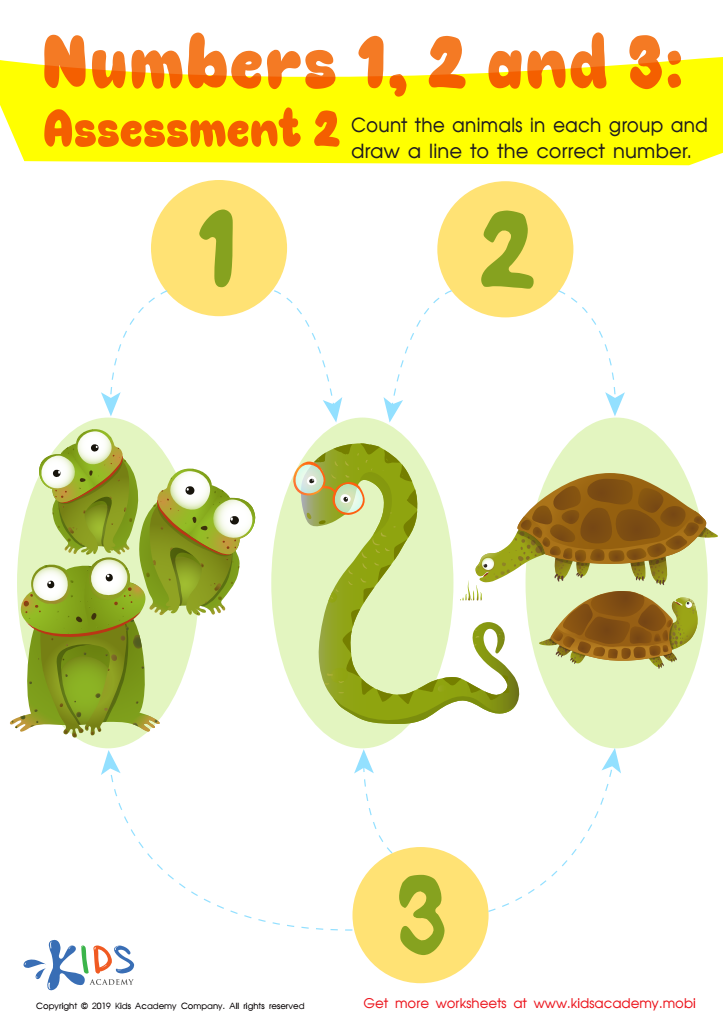

Numbers 1, 2 and 3: Assessment 2 Worksheet
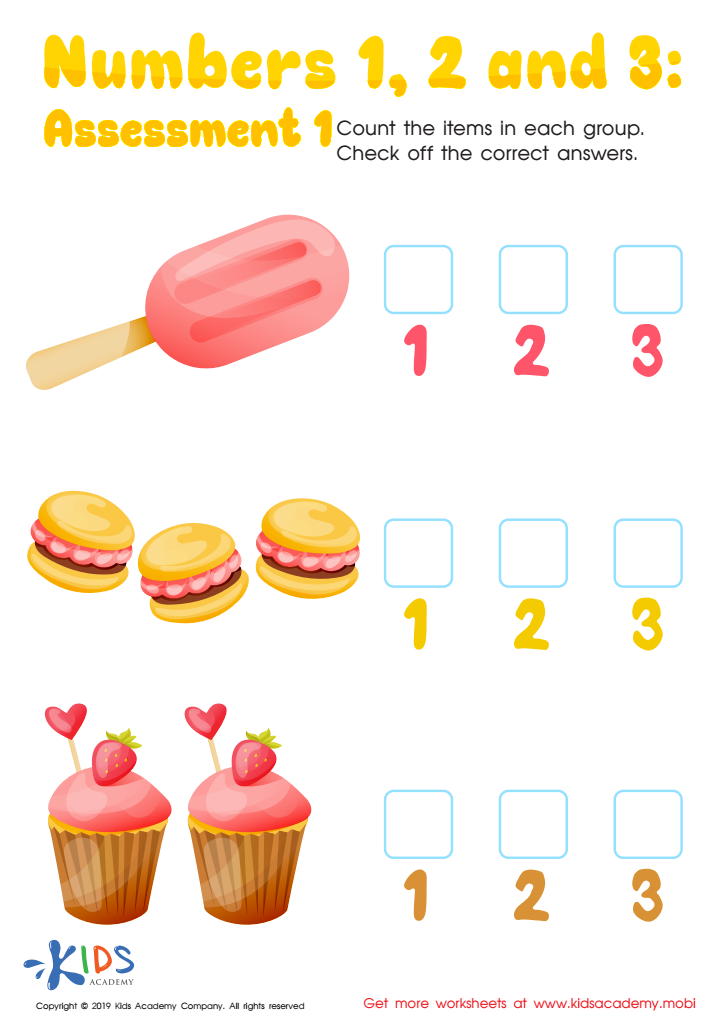

Numbers 1, 2 and 3: Assessment 1 Worksheet
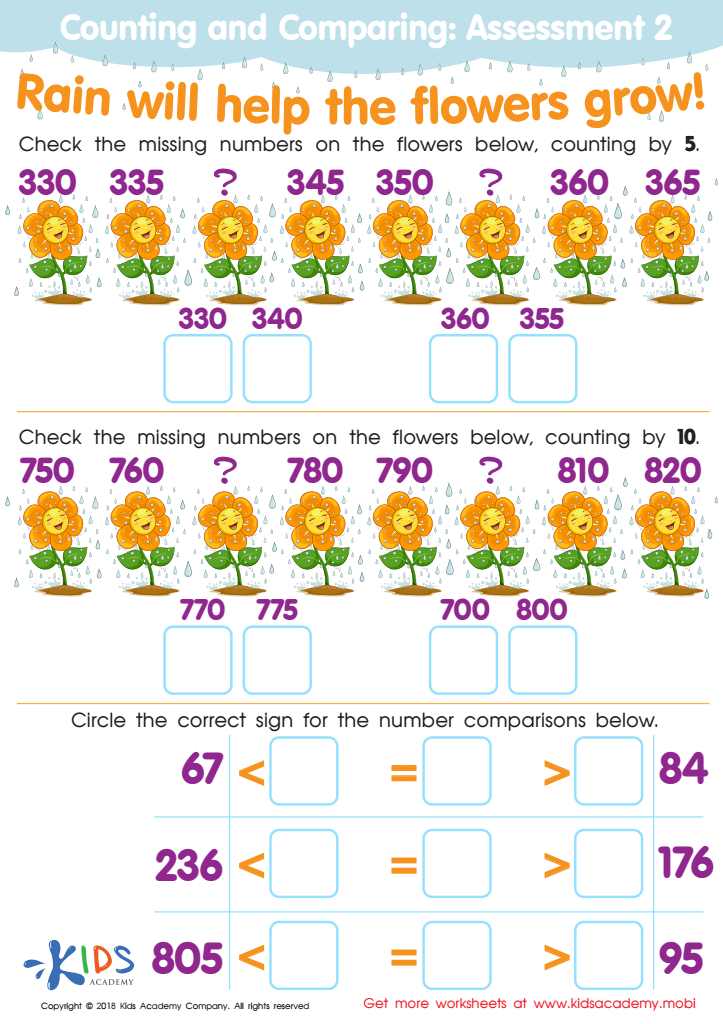

Counting and Comparing: Assessment 2 Worksheet
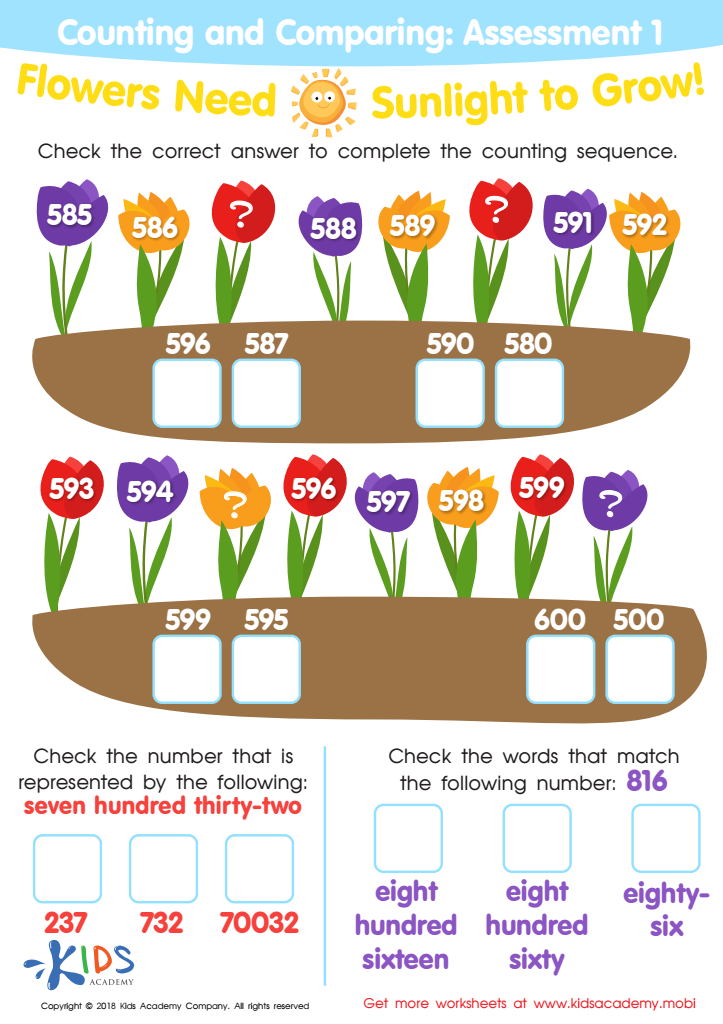

Counting and Comparing: Assessment 1 Worksheet
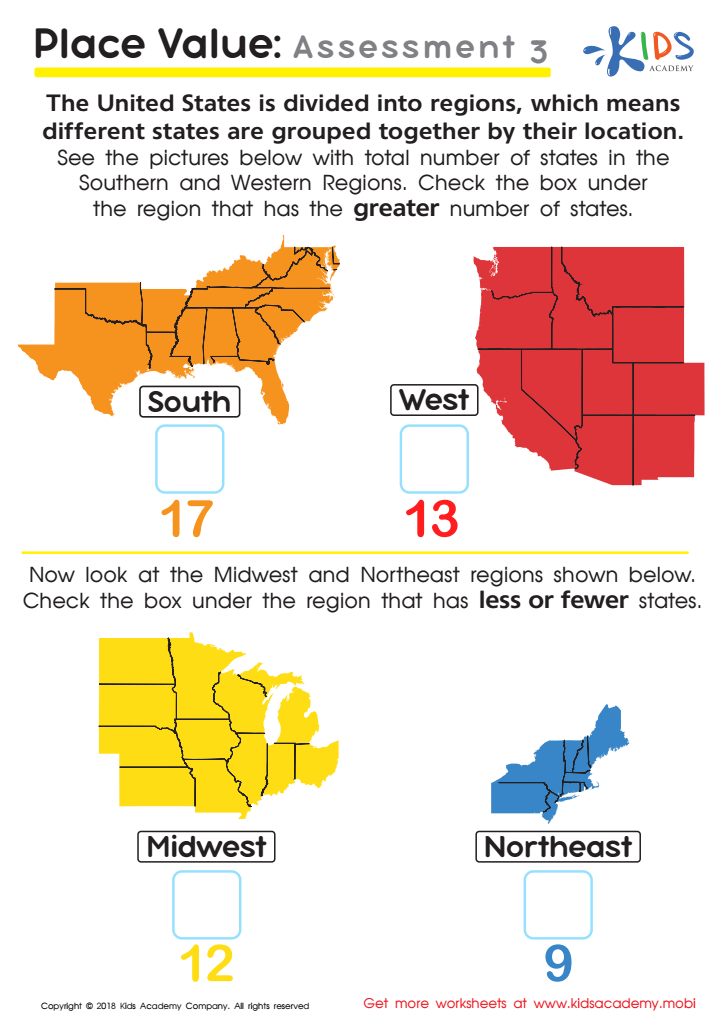

Place Value: Assessment 3 Worksheet
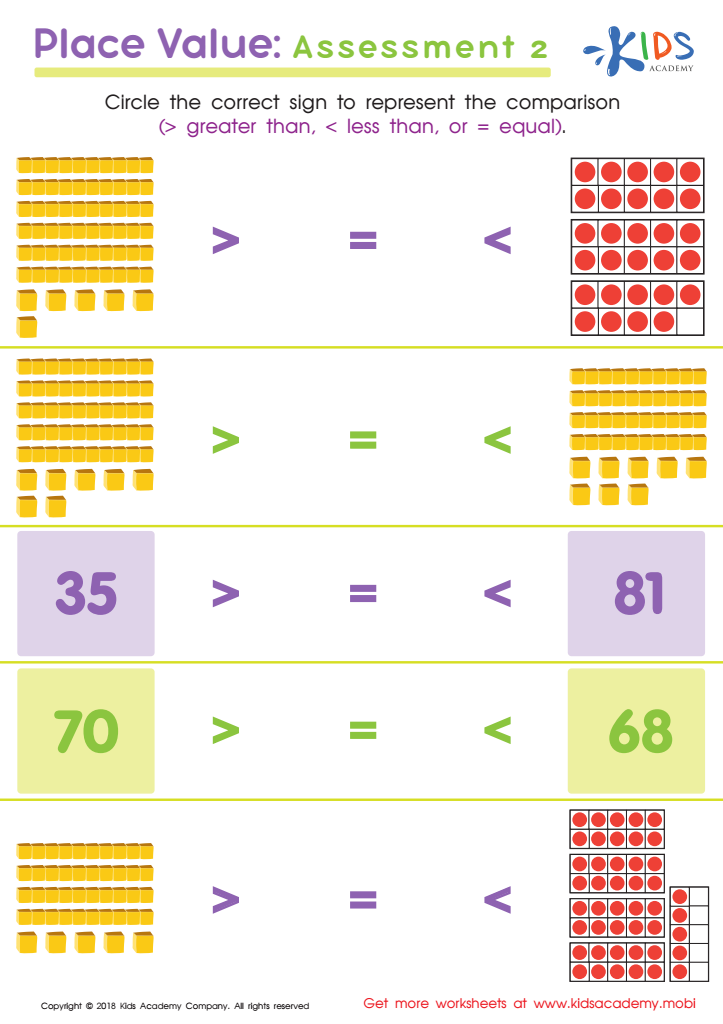

Place Value: Assessment 2 Worksheet
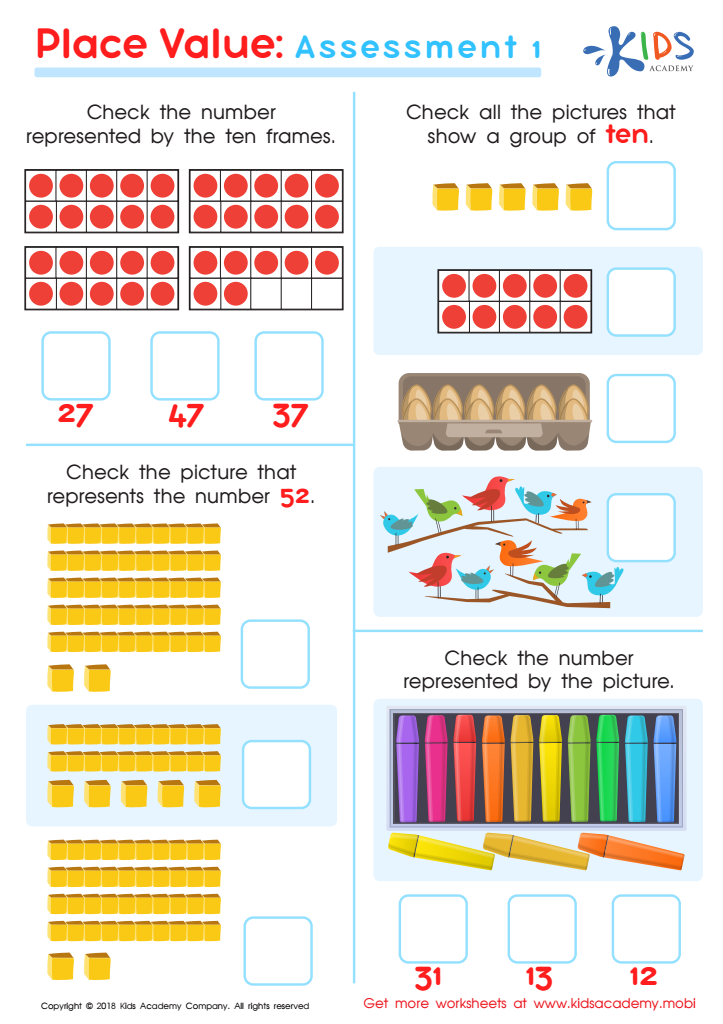

Place Value: Assessment 1 Worksheet
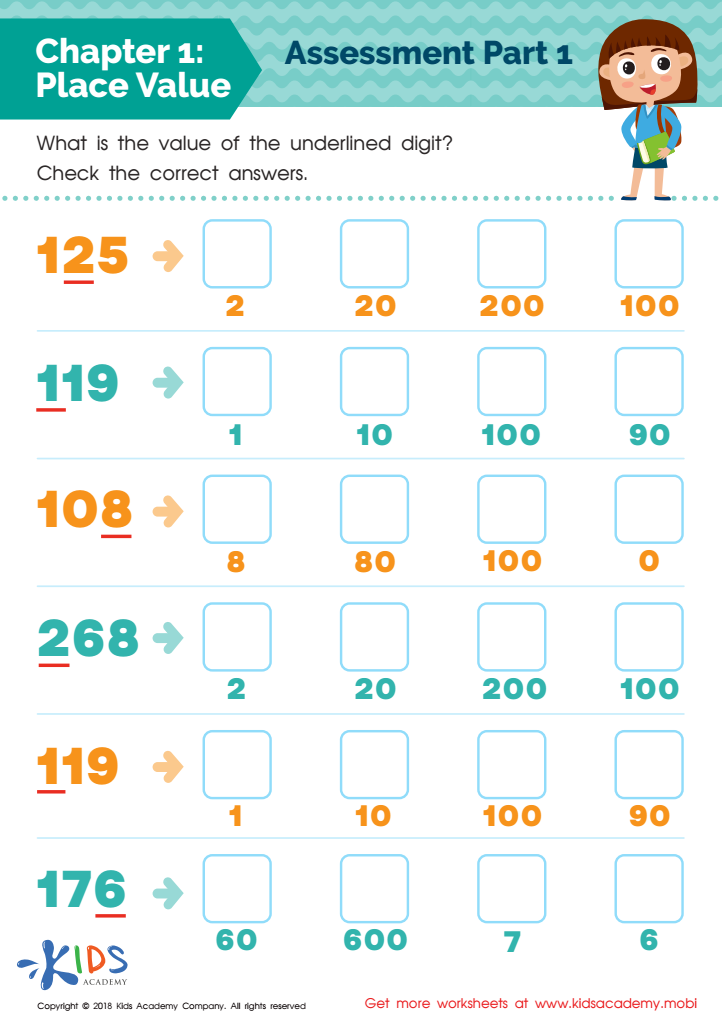

Place Value: Chapter 1 Worksheet
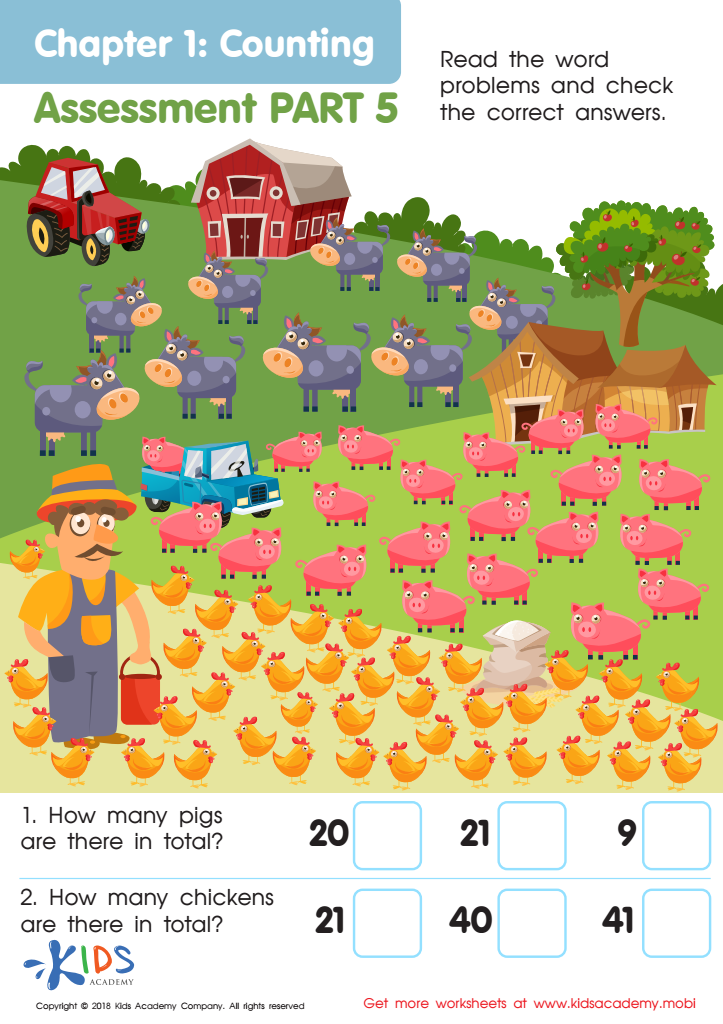

Counting: Assessment 5 Worksheet
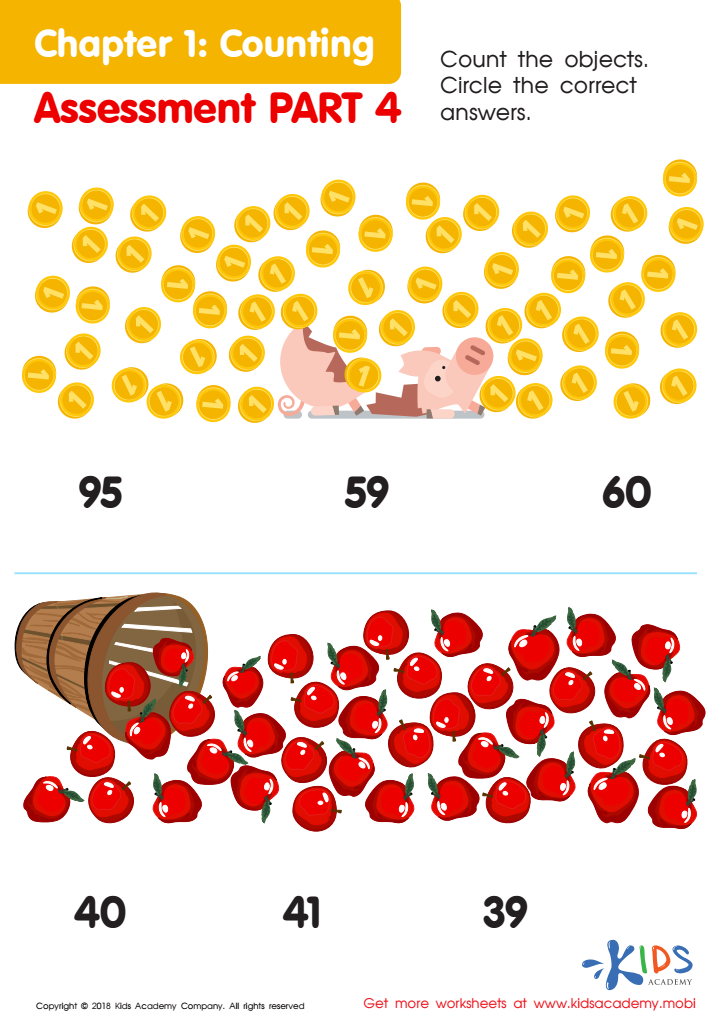

Counting: Assessment 4 Worksheet
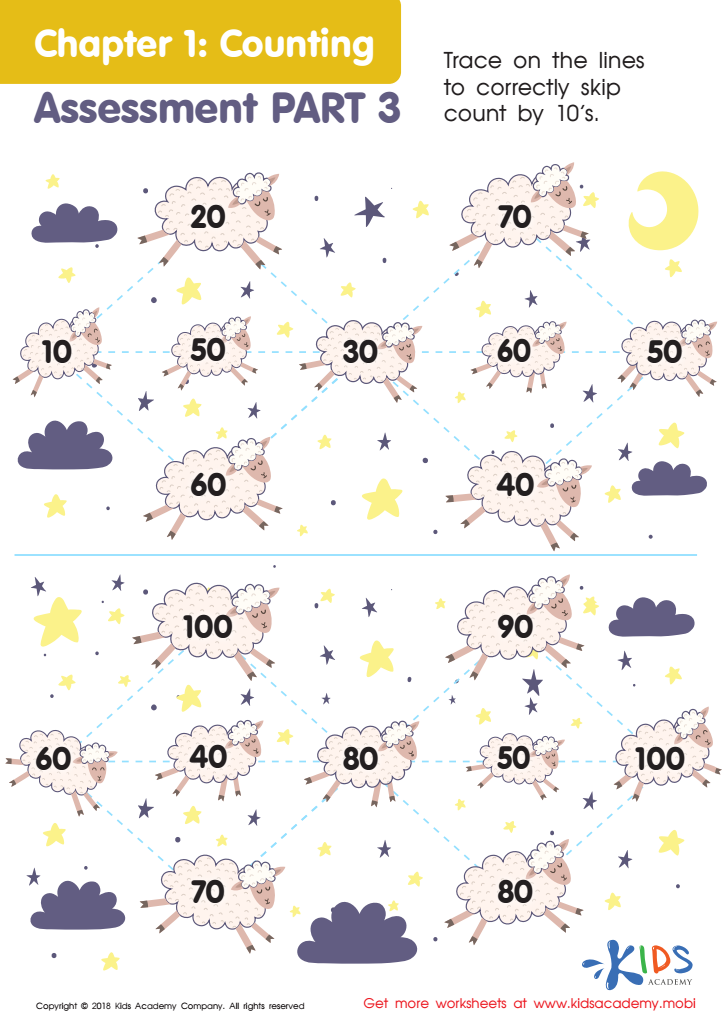

Counting: Assessment 3 Worksheet
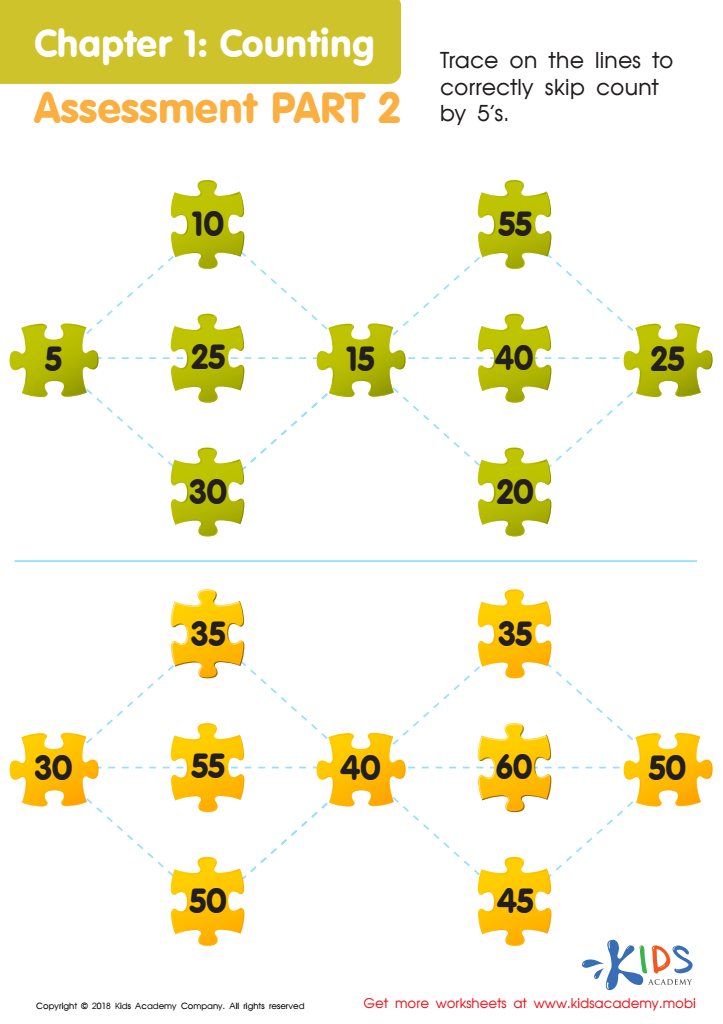

Counting: Assessment 2 Worksheet
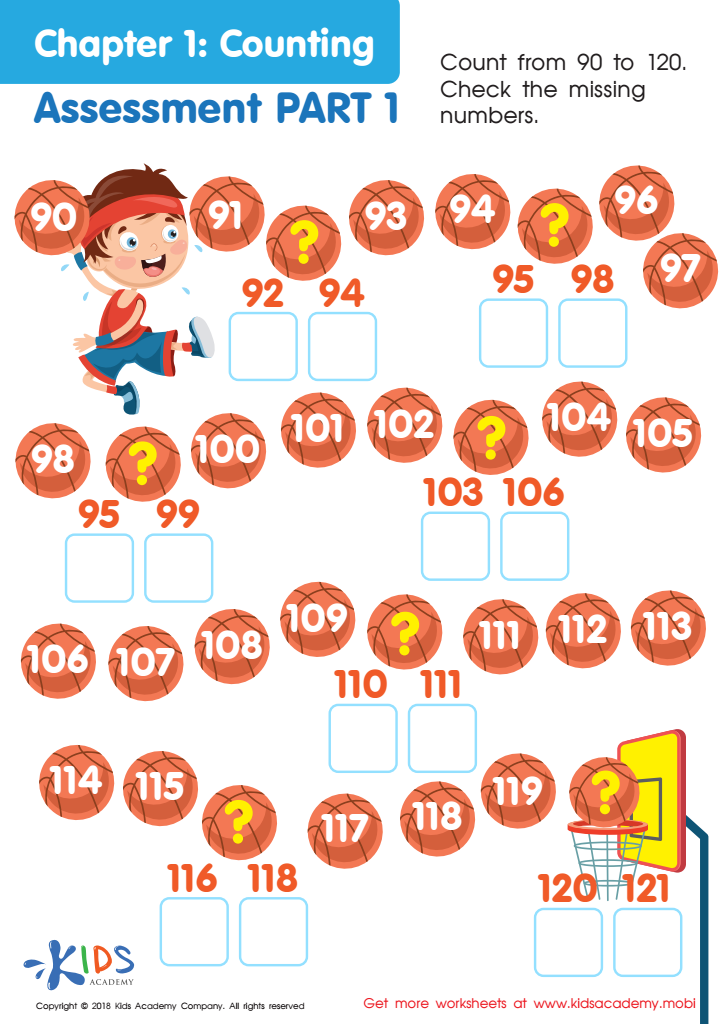

Counting Past 1: Assessment 1 Worksheet
Engaging children in number activities from ages 3 to 7 is crucial for a multitude of reasons. Firstly, this developmental stage is critical as children develop foundational math skills that set the groundwork for future learning. Activities involving numbers promote essential cognitive skills such as problem-solving, pattern recognition, and logical reasoning. By incorporating games, counting exercises, and everyday math concepts, children not only learn about quantity but also gain a deep understanding of relationships between numbers.
Moreover, number activities foster language development, as children learn to articulate numerical concepts and express their understanding. Collaborating with peers or adults during these activities enhances social skills and emotional intelligence, as children learn to share successes and face challenges together. For parents and teachers, being involved in these activities demonstrates a commitment to promoting a well-rounded education, paving the way for confidence in math as they grow.
Finally, early exposure to positive numerical experiences helps diminish math anxiety, establishing a positive attitude towards mathematics. By investing time and resources in number activities, parents and teachers can ensure that children not only achieve academic success but also develop a lasting appreciation for math in everyday life.
 Assign to My Students
Assign to My Students


















